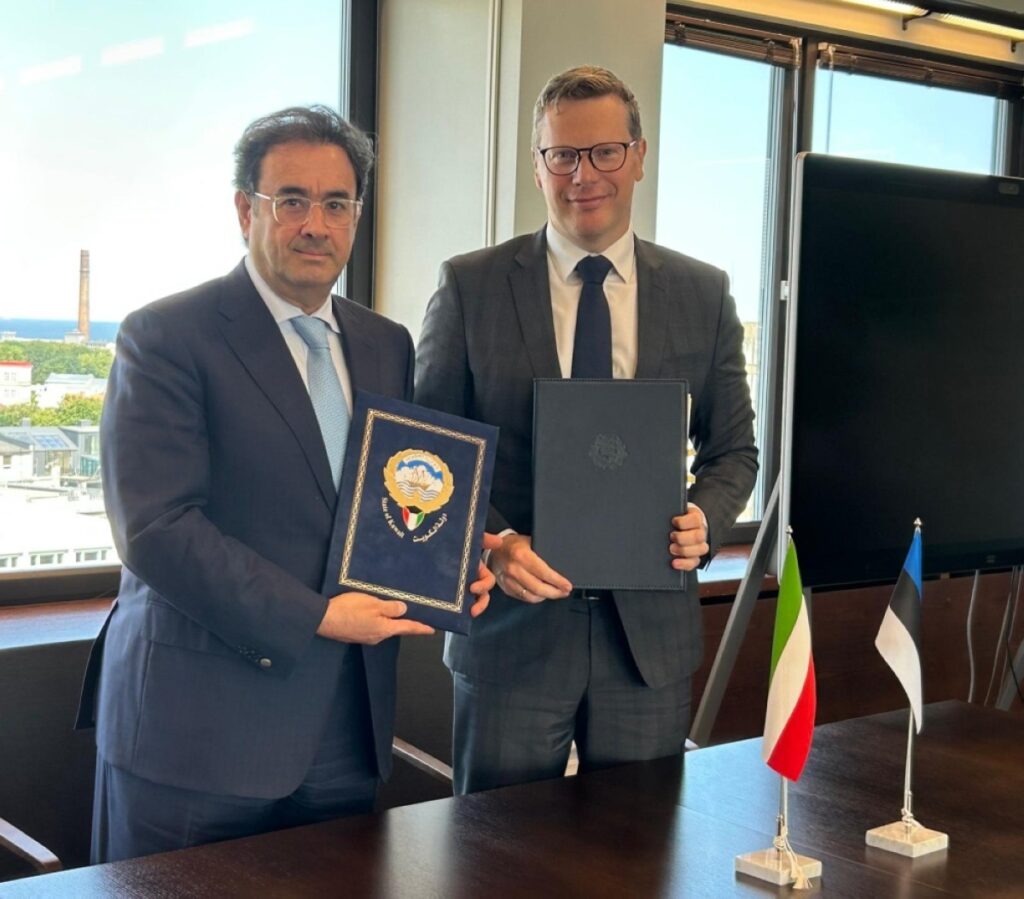TALLINN: Kuwait and Estonia signed a memorandum of understanding (MoU) on Friday to establish a framework for ongoing political consultations, marking a significant step in strengthening bilateral ties and opening the door for broader cooperation in digital transformation, cybersecurity, and investment. The agreement was signed in the Estonian capital by Kuwait’s Assistant Foreign Minister for European Affairs Sadiq Marafi and Estonia’s Undersecretary for Political Affairs Martin Roger, according to a statement from the Kuwaiti Embassy in Germany. The signing was followed by the first round of consultations between the two countries, led by Marafi and Roger, where discussions focused on key strategic sectors.
The talks explored ways to enhance cooperation in governance, technology, cybersecurity, and digitalization — key areas of focus under Kuwait’s Vision 2035. Both sides also discussed economic and investment opportunities, regional developments, and collaboration in multilateral forums. “These consultations mark a new phase of cooperation between our two countries,” said Marafi. “We are committed to exploring joint initiatives that can drive innovation and shared prosperity.”
Kuwait’s Ambassador to Germany and non-resident Ambassador to Estonia, Reem Al-Khaled, also participated in the consultations. Appointed in June 2025, Ambassador Al-Khaled has emphasized Kuwait’s commitment to building a “robust strategic partnership” with Estonia, particularly in digital transformation, education, and technology. “We are optimistic about expanding political, economic, and cultural ties in a way that serves the mutual interests of both nations,” she said earlier this year.
The timing of the MoU comes as Estonia rolls out a five-year Foreign Direct Investment (FDI) Strategy, published in October 2024. The strategy aims to attract €2.8 billion in FDI by 2030, with a focus on innovation-driven sectors like digital technology, renewable energy, and health tech. The strategy prioritizes deeper engagement with Gulf Cooperation Council (GCC) countries, including Kuwait.
According to the FDI strategy, Estonia sees Kuwait and other GCC countries as promising partners given their financial strength, investment appetite, and increasing focus on sustainability and AI. The strategy encourages tailored engagement with GCC investors, stressing that “Estonia should now gain the investors’ trust by elevating its marketing strategies.” Estonia’s strengths in digital governance, a vibrant startup ecosystem, and EU market access offer GCC investors an attractive platform for long-term strategic investments, the document said. — Agencies

